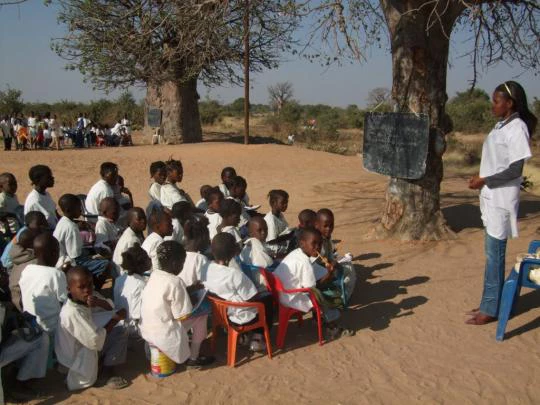It’s been said that learning is what most adults will do for a living in the 21st century. Sound a little exhausting? The fact is that there are fewer and fewer jobs being created that rely on rote tasks and memorization. There are more and more jobs that require creativity, teamwork, problem solving, and ongoing learning. Indeed, it’s fair to say that the illiterate of the 21st century will not be those who cannot read and write, but those who cannot learn, unlearn, and relearn. Children need to start acquiring these skills and attitudes early on, which is why education systems around the world are increasingly focused on reforms that involve setting and measuring new goals for learning that will better ensure their graduates’ success in today’s world.
Experience reveals three key lessons to keep in mind for those wishing to pursue these kinds of reforms:
Lesson 1: Benchmark learning globally
In a global economy, the primary benchmark for success is no longer improvement by national standards, but the best-performing education systems internationally. (Having said that, it’s also important for countries to set and measure learning goals that reflect their own national priorities and values.) This usually means participating in one of the many international assessment programs that test the math, science, problem solving or other competencies of students at the same grade or age level in different education systems around the world. Countries – particularly developing and emerging economies – may feel at a disadvantage in this global benchmarking, but should keep in mind that steady improvement over time is the important thing. Korea, which has shown remarkable progress in its education performance on the global stage over the past decade or so (with its economy as the beneficiary), is a good example of this.
Lesson 2: Believe that all children can learn
You must commit to the belief that all children can achieve. No longer can there be a ‘fast’ track for some students and a ‘not so fast’ track for others that leads to dead-end opportunities. One of the secrets behind the highest-performing education systems (think Finland, Singapore, and Japan) is a belief that every child can learn and succeed no matter where they are from or where they go to school. Measuring for success in today’s world means measuring for everyone’s success.
Lesson 3: Spend wisely to make a difference in learning
More money makes a difference up to a point. After that, what matters for learning is the quality of the spending choices. When it comes to measuring key learning goals for today’s world, one of the best investments is to build capacity in the classroom. This includes developing and retaining high-quality teachers who are able to engage in the kinds of instructional and assessment practices that support student learning in areas that are harder to measure on traditional tests, such as creativity and team work. These so-called non-cognitive or 21st century skills are vital to success in today’s workplace.
Next week, Russia will host a high-level global conference on the theme of “Measuring for Success” in St. Petersburg. The conference will explore a variety of student learning goals – for further study, work, and life – and the key role that measurement and assessment play in monitoring and achieving them. The conference is the result of a five-year partnership between Russia and the World Bank to support the improvement of learning outcomes at the global and country level. Countries such as Armenia, Kyrgyz Republic, Tajikistan, and Vietnam will share their successes and challenges ahead. These countries are proof that education systems that take learning and measurement of learning seriously are creating a foundation that will better ensure success for all their children in today’s world.



Join the Conversation